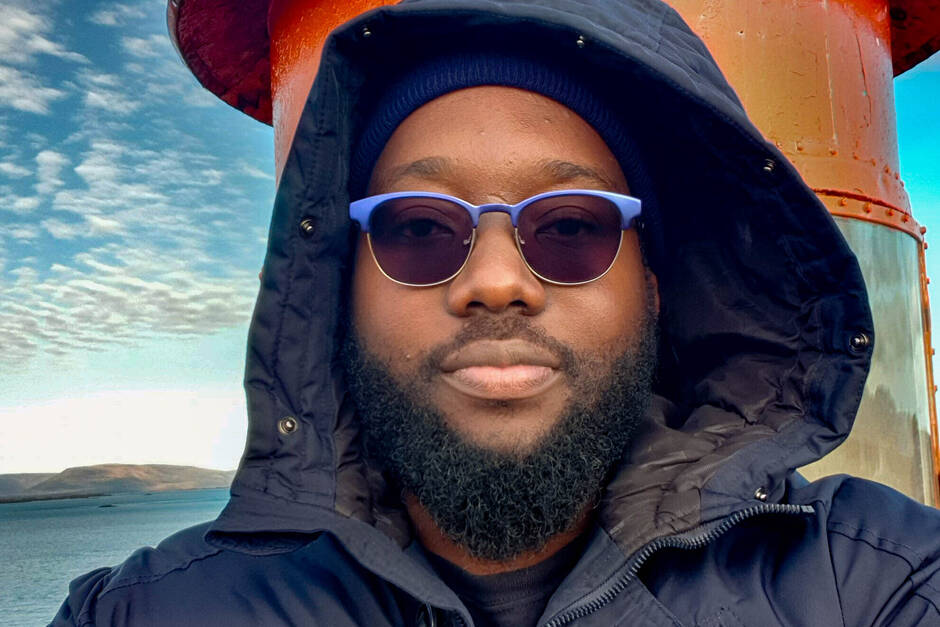Arthurton Bellot, Dominica
Sustainable Energy, Class of 2021
Name & Major: Arthurton Bellot, Sustainable Energy
Age: 27
Hometown: Trafalgar, Commonwealth of Dominica
Academic Background: Applied Geosciences, Faculté des Sciences et Techniques de Tanger
Why did you choose Iceland School of Energy for your graduate studies?
After having to experience the destruction of my country from a freak hurricane fuelled by climate change, I decided to focus on sustainability. Since it was Iceland GeoSurvey ( ÍSOR ) that initiated the geothermal program in Dominica, Iceland was at the forefront of my mind when choosing to study sustainable energy.
I ultimately chose to come to Iceland for two main reasons. The first was based on how Iceland revolutionised their economy with sustainable energy. The second was that by being a small and remote island, Iceland was a good model for re-implementing geothermal in small island nations. It is my wish to take what I learn here in Iceland and apply it to my island.
So far, how has your ISE experience been?
It's been really great and one of the best things has been the diversity. Not only in culture, but also in the background studies of everyone in the program. It is nice to get different angles and perspectives from people because you learn so much more from interdisciplinary work.
How does the ISE program allow you to combine your interests with your work here?
Being a geoscientist, I always had an interest in geothermal energy and the main thing that sold me on ISE were the connections they had to different companies. So many of these workers come into ISE classes and offer real experience. For example, ÍSOR has been employed on numerous projects in the Caribbean (my island included). This was a huge benefit since I was able to work on a real project here at ISE that has relevance and significance to the Caribbean.
How have you coped with the culture shock of moving to Iceland?
Well, it's not the tropics anymore! During the summer, it is so misleading because it is almost like home where everything is green, it's sunny and, dare I say it, warm. But then winter hits and it's just cold and dark. It is a serious adjustment. In fact, the darkness has been the hardest part and I have to keep reminding myself to take Vitamin D. But what provides some positivity are how welcoming and friendly the Icelandic people are.
Additionally, since I am probably one of the few people that came from a smaller country, while most people were commenting on how small Iceland was, I was amazed by how much bigger this island was.
So far, what has been your strangest experience in Iceland?
I think the strangest thing for me has been addressing everyone by their first name. After being drilled from a very young age to always address higher authority with titles, this has been a really weird thing to adapt to.
Another strange thing that happened was after our ISE end of the year party. While I was leaving with some friends, a group of random strangers walking down the street quite literally gave us a birthday cake… the candles were still in there. I'm just happy that there were witnesses so I know it was not a dream.
Yes, we ate the cake (it was pretty good actually).
What do you enjoy about living in Iceland?
It's familiarity and comforting nature. Originating from what is called the ‘Nature Island', it is more familiar for me to see mountains, waterfalls, hot springs, rivers and especially the sea.
A total contrast to the flat and plain landscape of Morocco that I witnessed in my undergrad. The fact that I can embrace more nature here and a natural view similar to my home country is quite comforting.
How would you describe life in Reykjavik?
Chill. Literally and figuratively. The weather, the people, the culture. It's all very easy going. Life in Iceland doesn't weigh as much on you because most people are happy and friendly. The people here are very warm and welcoming which makes it easier to manage stress.
How is studying at ISE different from where you studied before?
I think the main thing is business connections. When I did my undergrad, we had to go on our own and look for the companies that we could do projects with. In ISE, the people that work for the companies come in and give lectures so you already get that connection. This takes the load off when it comes to networking for thesis and/or future work.
What is something you have done here that everybody should do?
I feel like everyone should try to climb or at least see a glacier before they disappear. They're truly breathtaking!
What is something you wouldn't recommend to anyone coming here?
Listen, first of all, stay away from that fermented shark. Secondly, the whole Arctic plunge idea is a no from me. Taking a plunge in an average of 7 o C water at any time of the year just seems insane (Fun fact: Average sea temperature in the Caribbean is about 27 o C).
What is the most useless thing you brought?
My umbrella. I heard that it rains a lot in Iceland and so I thought I had to bring my umbrella. However, I underestimated the wind here which is always intense so an umbrella is useless.
What has been the most rewarding part of this entire experience?
The ISE family we've created is the most rewarding. I haven't had a close-knit group of people like this since before my undergrad. Regardless of our academic and cultural backgrounds, we are all one big family who work together and support each other and that is great.

